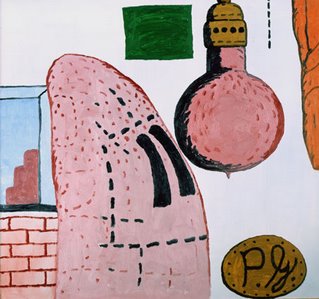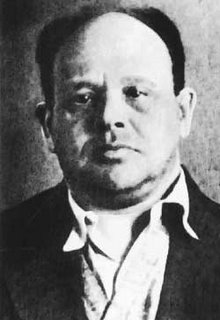The Red Cavalry Stories


I first heard of Isaac Babel from a quote by painter Philip Guston. Guston was talking about the strange "hood" images he produced in his later work. "But the Klan figures of 1970 were allegorical self-portraits. "I perceive myself as being behind a hood.... The idea of evil fascinated me, and rather like Isaac Babel, who had joined the Cossacks, lived with them and written stories about them, I almost tried to imagine that I was living with the Klan. What would it be like to be evil? To plan and plot?" And from the same article, by Arthur C. Danto and Philip Guston, "He once quoted a speech that Isaac Babel, one of the writers he admired most, gave to the Soviet Writers Union in 1934. Babel said: A very important privilege, comrades, has been taken away from you. That of writing badly. Guston added: Doesn't anyone want to paint badly? It was as if he were reclaiming a forfeited privilege in 1970. The freedom to throw aesthetics to the wind. The only painter to recognize this at the Marlborough opening was de Kooning. For the rest of the art world, it was, Guston said, "as though I had left the Church: I was excommunicated for a while."
A few years ago, I became very familiar with Babel's Odessa Stories, about Benya Krik, the gangster, head of the Jewish gangsters in pre-revolutionary Odessa. They are fantastic and I recommend them highly.
Today, I'm reading The Red Cavalry Stories. From an article called Terrible Beauty, by Ben Ehrenreich:
We have needed Isaac Babel sorely these past few years, during which we’ve had to depend on the treacly fantasies of Spielberg and Hanks for too much of our understanding of war. We’ve needed him even more these past few months, as carnage has yet again been dressed up as moral crusade. It is hard to think of anyone who has written about war with as much subtlety, honesty and devastating beauty as Babel, whose Red Cavalry stories fictionally recount the months that he, a bespectacled Ukrainian Jew, spent riding with a brutal and anti-Semitic Cossack cavalry unit on the Polish front in the Russian Civil War."
These little stories, and some of them are very short, are Babel's on the scene reports on the folly of war. They are stark, and strangely beautiful. Like the Odessa stories, the characters pull you in and make you witness their brutal world. Isaac Babel wrote about some actual figures - leaders of the Red Cavalry - who were less than amused by his portrayal. Babel was finally executed in 1940 Stalinist Russia.
The photo was a prison mugshot of Babel.

3 comments:
What a bold person. I am almost afraid to read...........
Maybe he's freer than most of us. Able to admit an occasionaly attraction to violence.
May I recommend War is a Force That Gives Us Meaning by Chris Hedges. (it's a book I'll read over and over again)
For a taste check out the text of a college graduation speech he gave in 2003.
This sounds like great stuff, but then you always recommend stuff that sounds good.
Post a Comment